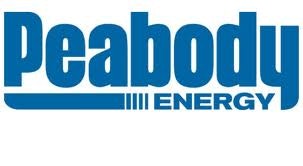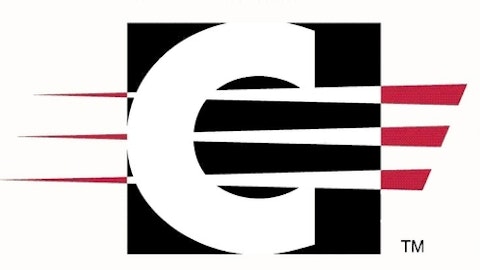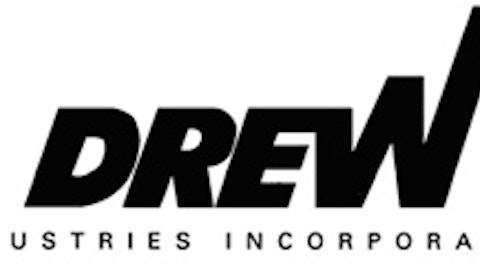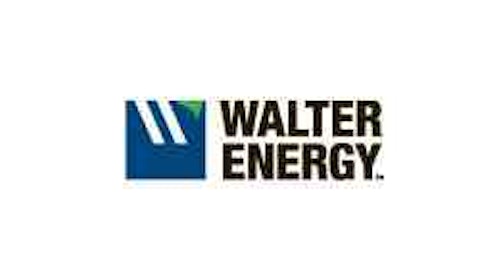At a time when the whole coal industry faces severe headwinds, Peabody Energy Corporation (NYSE:BTU) surprised analysts by reporting a profit instead of a loss. The company’s second quarter earnings topped analysts’ estimates by $0.38. Does this mean that Peabody Energy and the coal industry are back on track? Let’s find out.
In the second quarter, Peabody Energy Corporation (NYSE:BTU) earned net income $90.3 million, or $0.33 per share, versus $204.7 million, or $0.75 per share last year. Analysts at Thomson Reuters were expecting the company to report a loss of $0.05 a share. Revenue dropped from nearly $2 billion to $1.7 billion, missing analysts’ estimates of $1.8 billion.
The chief reason behind the surprise was a lower than expected tax rate. Peabody Energy Corporation (NYSE:BTU)’s operating results weren’t up to the mark amid low prices, especially for met coal.
Australian dollar loses value
During the last couple of months, the Australian dollar has lost more than 10% of its value relative to the US dollar. In order to inject more money in the economy, the Australian government has plans of keeping interest rates close to zero. This would result in inflation in the long run, which would further weaken the Australian dollar. As Peabody Energy Corporation (NYSE:BTU) sells large amounts of coal from its Australian mines to the Asian countries, a weaker Australian dollar would translate into more profits for the company.
The World Bank limits coal funding
Recently, the World Bank announced that it would limit its funding of coal projects in the developing nations. In order to build coal-fired power plants, the World Bank had given almost $6 billion in funds to developing nations during the last five years.

The World Bank’s latest move means that there will be an oversupply of thermal coal in the market, ultimately having a negative effect on thermal coal prices.
Going forward
As coal-fired power plants emit large amounts of carbon dioxide in the atmosphere, regulations for carbon dioxide emissions could also have an adverse effect on coal companies. With more capital spent on upgrading coal plants, the costs associated with burning coal will rise, making coal a more expensive energy resource.
According to the Energy Information Administration, coal consumption in the U.S. is expected to grow 7.1% in 2013. However, demand for coal in the long run is expected to remain low relative to natural gas demand.
According to the EIA, gas-fired plants have lower generating costs versus coal-fired plants, even if gas becomes 1.5 times more expensive than coal. In contrast to coal plants, natural gas plants can easily increase or decrease their output in less time and at a lower expense, giving more flexibility to power-generating companies.
In the U.S., rising steel imports have drastically affected the domestic steel industry. With the domestic industry depending more on imported steel, local steelmakers are suffering from weaker demand, which in turn is putting downward pressure on coking coal prices. If the U.S. government doesn’t issue regulation on imported steel, local met coal prices will remain low.
In order to keep generating profits, Peabody Energy Corporation (NYSE:BTU) is cutting down on its operating costs. As part of this plan, it recently slashed another 170 workers in Queensland, Australia. But, is this the long-term solution? The answer is no. As Peabody is the largest private-sector coal company in the world, fueling more than 2% of the world’s electricity, its long-term future rests on the global demand for coal. It can keep on lowering its costs, but the ultimate solution to its worries is higher revenue, which would be negatively affected by low coal prices.
Major players
In the second quarter, Alpha Natural Resources, Inc. (NYSE:ANR) posted a loss of $0.84 a share, in line with analysts’ average estimates as compiled by Thomson Reuters. Revenue stood at $1.3 billion, down $500 million from the same quarter last year.
A recent shutdown at the Cumberland mine in Pennsylvania resulted in low shipments and high costs for the company. Production was suspended at the mine due to adverse geological conditions in its head-gate area. As the Cumberland mine extracts high-margin thermal coal, the shutdown is expected to take a toll on Alpha Natural Resources, Inc. (NYSE:ANR)’s third-quarter earnings. The company expects to restart operations at the mine during the last week of August.
Just like Peabody Energy Corporation (NYSE:BTU), Alpha Natural Resources, Inc. (NYSE:ANR) has become a victim of low coal demand. As a result, the average realized prices for the company kept on falling this year as well. Alpha’s high beta of 2.4 shows that it’s a hugely cyclical company that depends largely on economic conditions.
On the other hand, Arch Coal Inc (NYSE:ACI) reported an adjusted loss of $0.29 per share in its second quarter, down $0.19 a share from the same quarter last year. Revenue from continuing operations also dipped 21% in the quarter.




